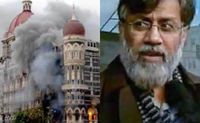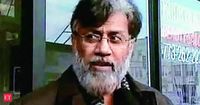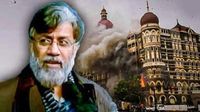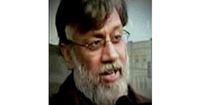Tahawwur Rana, a key figure in the 2008 Mumbai terror attacks, is on the verge of being extradited from the United States to India. According to multiple sources, a multi-agency team from India has arrived in the U.S. to finalize the necessary paperwork for his extradition, with indications that his transfer could occur imminently. This development follows a series of legal setbacks for Rana, whose last-ditch efforts to evade extradition were thwarted when the U.S. Supreme Court denied his application for a stay on April 7, 2025.
Rana, currently detained at the Metropolitan Detention Center in Los Angeles, had submitted an emergency application seeking to prevent his extradition on the grounds that it would violate U.S. law and the UN Convention Against Torture. In his application, he argued that he faced a significant risk of torture if returned to India, particularly due to his Muslim background and the serious charges against him related to the Mumbai attacks. His health concerns, including multiple life-threatening conditions, were also cited as reasons against extradition.
Despite his pleas, the Supreme Court's decision marks a significant turning point in a case that has drawn international attention. The court's order stated that Rana’s application was denied, clearing the way for his extradition. Sources suggest that Rana will not arrive in India on April 9, 2025, as previously speculated, but the extradition process is actively moving forward.
Rana, a Canadian national of Pakistani origin, has been linked to David Coleman Headley, one of the main conspirators behind the 26/11 attacks. Headley, a Pakistani-American, conducted reconnaissance for the attacks, which resulted in the deaths of 166 people, including six Americans, during a coordinated assault on multiple locations in Mumbai.
In February 2025, U.S. President Donald Trump confirmed that Rana's extradition had been approved, stating he would be brought back to India to face justice. This decision followed extensive diplomatic efforts by the Indian government, which has been pursuing Rana's extradition since December 2019. The Modi administration submitted a diplomatic note to the U.S. and filed a complaint seeking Rana's provisional arrest in June 2020.
As Rana prepares for his return, arrangements are being made at two jails in India—one in Delhi and another in Mumbai—to accommodate him upon arrival. The National Investigation Agency (NIA) will take him into custody for initial interrogation. National Security Advisor Ajit Doval is overseeing the extradition process, highlighting the importance of this case in India’s ongoing battle against terrorism.
Rana's role in the Mumbai attacks has been described as pivotal. He allegedly assisted Headley in obtaining travel documents and was in India just days before the attacks to oversee the logistical preparations. Investigators have noted that Rana checked into the Hotel Renaissance in Powai, Mumbai, from November 11 to 21, 2008, just five days before the attacks unfolded.
During his time in the U.S., Rana was acquitted of charges related to providing material support for the attacks but was convicted on other charges and sentenced to over ten years in prison. Following his release due to health issues exacerbated by the COVID-19 pandemic, he was rearrested for extradition purposes.
As Rana's extradition nears completion, experts believe his interrogation will yield significant insights into terrorist networks operating within India. Former Uttar Pradesh DGP Vikram Singh emphasized that Rana's connections to Lashkar-e-Taiba and his association with Headley make him a crucial figure in uncovering deeper terror networks. Singh stated, "The NIA is fully prepared, and once he is brought back, custodial interrogation will be conducted by multiple agencies, including the NIA, IB, and Mumbai Police. His interrogation will reveal crucial information about sleeper cells, support networks, and possibly even names from the Mumbai film industry who assisted Headley during his reconnaissance activities."
Rana's extradition and subsequent interrogation are anticipated to shed light on the operational dynamics of terrorist organizations and their connections to broader geopolitical tensions. The Indian government remains vigilant, prepared to act on any intelligence that emerges from Rana's testimony.
As this story develops, the implications of Rana's extradition extend beyond the courtroom. It symbolizes a broader commitment by India and the U.S. to confront terrorism collaboratively, reinforcing their shared interests in regional security and stability. The case also underscores the complexities of international law and human rights concerns, particularly regarding extradition practices in cases involving serious allegations of terrorism and torture.
As Rana's flight to India approaches, many await the outcomes of his interrogation and the potential revelations regarding the Mumbai attacks and the networks that facilitated them. The stakes are high, and the eyes of the world are on this significant moment in the fight against terrorism.









